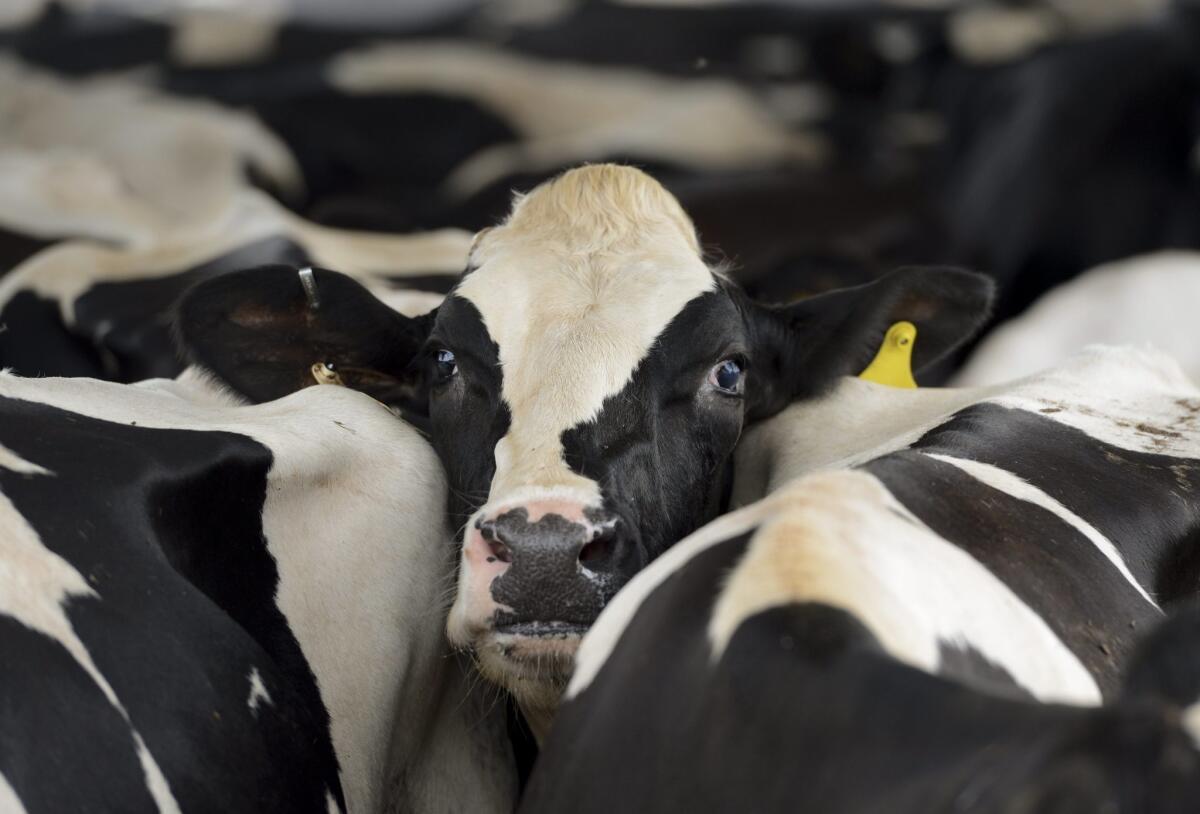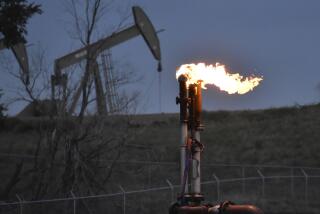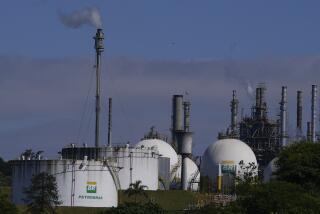Editorial: Putting a lid on methane from cattle

- Share via
The $1.1-trillion omnibus spending bill signed by President Obama contains many giveaways to Wall Street, casinos and the coal industry. But the ones that might do the most severe damage long-term have to do with, of all things, the digestive systems of cattle.
Through their manure and, yes, their flatulence, cattle are major producers of methane, a potent greenhouse gas that the public hears much less about than carbon. Methane breaks down much more quickly than carbon — after about 50 years — but during that time, it is 20 to 30 times more potent at trapping heat and is considered the source of a quarter of all global warming.
Yet the spending bill specifically barred the federal government from requiring cattle operations to report greenhouse gas emissions from manure or to obtain permits for methane produced by bovine belching and flatulence. Both sources of methane are controllable; there is machinery that can convert manure into biofuel, and changes in the diet of cattle can make a major difference in flatulence levels.
Methane also is produced by landfills and by the oil and gas industries, but the U.S. Environmental Protection Agency reports that worldwide, the agricultural sector is the biggest contributor.
Reductions in methane and other highly potent short-term greenhouse gases would be a particularly useful short-term strategy to buy the planet some time as it combats the effects of climate change — effects that are sounding more and more dire with each new study. Reports from the Intergovernmental Panel on Climate Change have reflected sharply growing levels of alarm over the pace of human-caused global warming, which is occurring faster than climate scientists had predicted. The most recent report by the scientific body of the United Nations, released in November, warned that failure to take major steps could result in mass extinctions of plants and animals, widespread starvation and the flooding of major cities and island nations, resulting in nearly unfathomable refugee crises.
Of course it is difficult to forecast with specificity exactly what the fallout will be or when it will occur. Mistakes will be made in doing so. But the IPCC report points out that some of those effects already are being felt. Climate change is behind a small decline in global food production, it said. It also pointed to rapidly melting ice in the polar regions, rising sea levels and dying forests in the American West, infested by pests that thrive in hotter conditions.
Uncertainty about the precise effects of climate change is not an excuse for inaction when the scientific consensus is clear. Congress shouldn’t be handing short-term gifts to the National Cattlemen’s Beef Assn. at the risk of great environmental harm.
Follow the Opinion section on Twitter @latimesopinion
More to Read
A cure for the common opinion
Get thought-provoking perspectives with our weekly newsletter.
You may occasionally receive promotional content from the Los Angeles Times.










